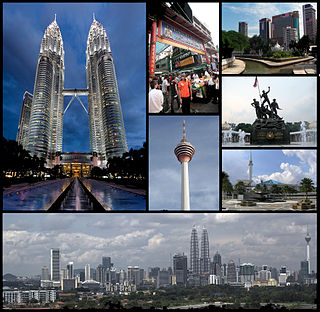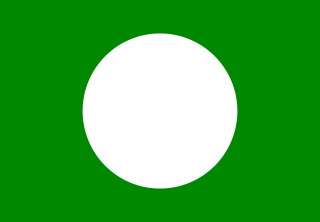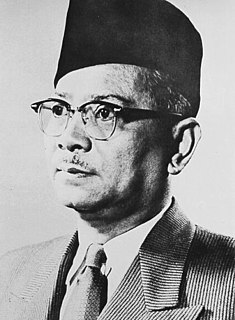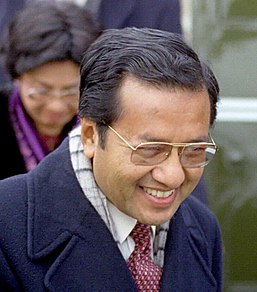| |||||||||||||||||||||||||||||||||||||||||||||||||||||||||||||||||||||||||||||||||||||||||||||||||||||||||||||||||||||
All 144 seats to the Dewan Rakyat 73 seats needed for a majority | |||||||||||||||||||||||||||||||||||||||||||||||||||||||||||||||||||||||||||||||||||||||||||||||||||||||||||||||||||||
|---|---|---|---|---|---|---|---|---|---|---|---|---|---|---|---|---|---|---|---|---|---|---|---|---|---|---|---|---|---|---|---|---|---|---|---|---|---|---|---|---|---|---|---|---|---|---|---|---|---|---|---|---|---|---|---|---|---|---|---|---|---|---|---|---|---|---|---|---|---|---|---|---|---|---|---|---|---|---|---|---|---|---|---|---|---|---|---|---|---|---|---|---|---|---|---|---|---|---|---|---|---|---|---|---|---|---|---|---|---|---|---|---|---|---|---|---|---|
| Registered | 3,450,000 | ||||||||||||||||||||||||||||||||||||||||||||||||||||||||||||||||||||||||||||||||||||||||||||||||||||||||||||||||||||
| Turnout | 2,532,042 (73.6%) | ||||||||||||||||||||||||||||||||||||||||||||||||||||||||||||||||||||||||||||||||||||||||||||||||||||||||||||||||||||
| |||||||||||||||||||||||||||||||||||||||||||||||||||||||||||||||||||||||||||||||||||||||||||||||||||||||||||||||||||||
| |||||||||||||||||||||||||||||||||||||||||||||||||||||||||||||||||||||||||||||||||||||||||||||||||||||||||||||||||||||
A general election was held on Saturday, 10 May 1969 for members of the 3rd Parliament of Malaysia, although voting was postponed until between 6 June and 4 July 1970 in Sabah and Sarawak. [1] This election marked the first parliamentary election held in Sabah and Sarawak after the formation of Malaysia in 1963.

The Parliament of Malaysia is the national legislature of Malaysia, based on the Westminster system. The bicameral parliament consists of the Dewan Rakyat and the Dewan Negara (Senate). The Yang di-Pertuan Agong (King) as the Head of State is the third component of Parliament.
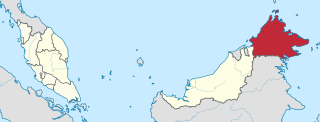
Sabah is a state of Malaysia located on the northern portion of Borneo. Sabah has land borders with the Malaysian state of Sarawak to the southwest and Indonesia's Kalimantan region to the south. The Federal Territory of Labuan is an island just off the Sabah coast. Sabah shares maritime borders with Vietnam to the west and the Philippines to the north and east. Kota Kinabalu is the state capital city, the economic centre of the state and the seat of the Sabah state government. Other major towns in Sabah include Sandakan and Tawau. As of the 2015 census in Malaysia, the state's population is 3,543,500. Sabah has an equatorial climate with tropical rainforests and abundant animal and plant species. The state has long mountain ranges on the west side which form part of the Crocker Range National Park. Kinabatangan River, second longest river in Malaysia runs through Sabah and Mount Kinabalu is the highest point of Sabah as well as of Malaysia.
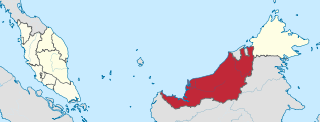
Sarawak is a state of Malaysia. The largest among the 13 states, with an area almost equal to that of Peninsular Malaysia, Sarawak is located in northwest Borneo Island, and is bordered by the Malaysian state of Sabah to the northeast, Kalimantan to the south, and Brunei in the north. The capital city, Kuching, is the largest city in Sarawak, the economic centre of the state, and the seat of the Sarawak state government. Other cities and towns in Sarawak include Miri, Sibu, and Bintulu. As of the 2015 census, the population of Sarawak was 2,636,000. Sarawak has an equatorial climate with tropical rainforests and abundant animal and plant species. It has several prominent cave systems at Gunung Mulu National Park. Rajang River is the longest river in Malaysia; Bakun Dam, one of the largest dams in Southeast Asia, is located on one of its tributaries, the Balui River. Mount Murud is the highest point in Sarawak.
Contents
The election resulted in the return to power, with a reduced majority, of the ruling Alliance Party, comprising the United Malays National Organisation (UMNO), the Malayan Chinese Association, and the Malayan Indian Congress. The Parti Gerakan Rakyat Malaysia (Gerakan) and the Democratic Action Party (DAP), which had campaigned against Bumiputra privileges outlined by Article 153 of the Constitution, made major gains in the election. [2] Voter turnout was 73.6%. Opposition won 54 seats in total causing the Alliance to lose its two-thirds majority in the Parliament (two-thirds majority being the majority required to pass most constitutional amendments) for the first time. This election also saw that Alliance lost its majority in Perak, Selangor and Penang in addition to Kelantan. It would cause the 13 May Incident.

The United Malays National Organisation is Malaysia's main opposition political party. It is a founding member of the Barisan Nasional coalition which, with its predecessor the Alliance, had been the government of Malaysia and dominated the country's politics from independence until 2018. Until then, all of Malaysia's Prime Ministers had been members of UMNO, until Mahathir Mohamad became the first prime minister from Pakatan Harapan, and the first prime minister to have tenures with two different parties.
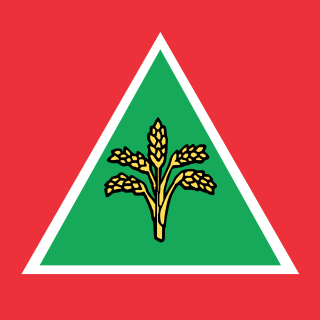
The Malaysian People's Movement Party is a political party in Malaysia. The party was founded on 24 March 1968, and is one of the former constituents of the Barisan Nasional (BN) coalition. During its formation, Gerakan was an opposition party not affiliated with the national ruling coalition, the Alliance Party, the predecessor of the National Front. Following the 1969 general election, Gerakan won most of the seats in the state legislature of Penang. However, in 1972 Gerakan joined the Alliance Party which later became the coalition Barisan Nasional, where it remained until June 2018. In 2006, about 80% of Gerakan's members are ethnic Chinese, another 15% are Indian, and the rest are Malays or other races. The party is assisted by an affiliated think tank called SEDAR Institute. The party is a member of the Council of Asian Liberals and Democrats. Following the fall of BN in the 2018 general election and in the aftermath of four Sarawak-based BN coalition parties leaving the coalition on 12 June 2018, Gerakan also left the coalition on 23 June 2018.
Article 153 of the Constitution of Malaysia grants the Yang di-Pertuan Agong responsibility for "safeguard[ing] the special position of the 'Malays' and natives of any of the States of Sabah and Sarawak and the legitimate interests of other communities" and goes on to specify ways to do this, such as establishing quotas for entry into the civil service, public scholarships and public education.
State elections also took place in 330 state constituencies in 12 (out of 13, except Sabah) states of Malaysia on the same day.

